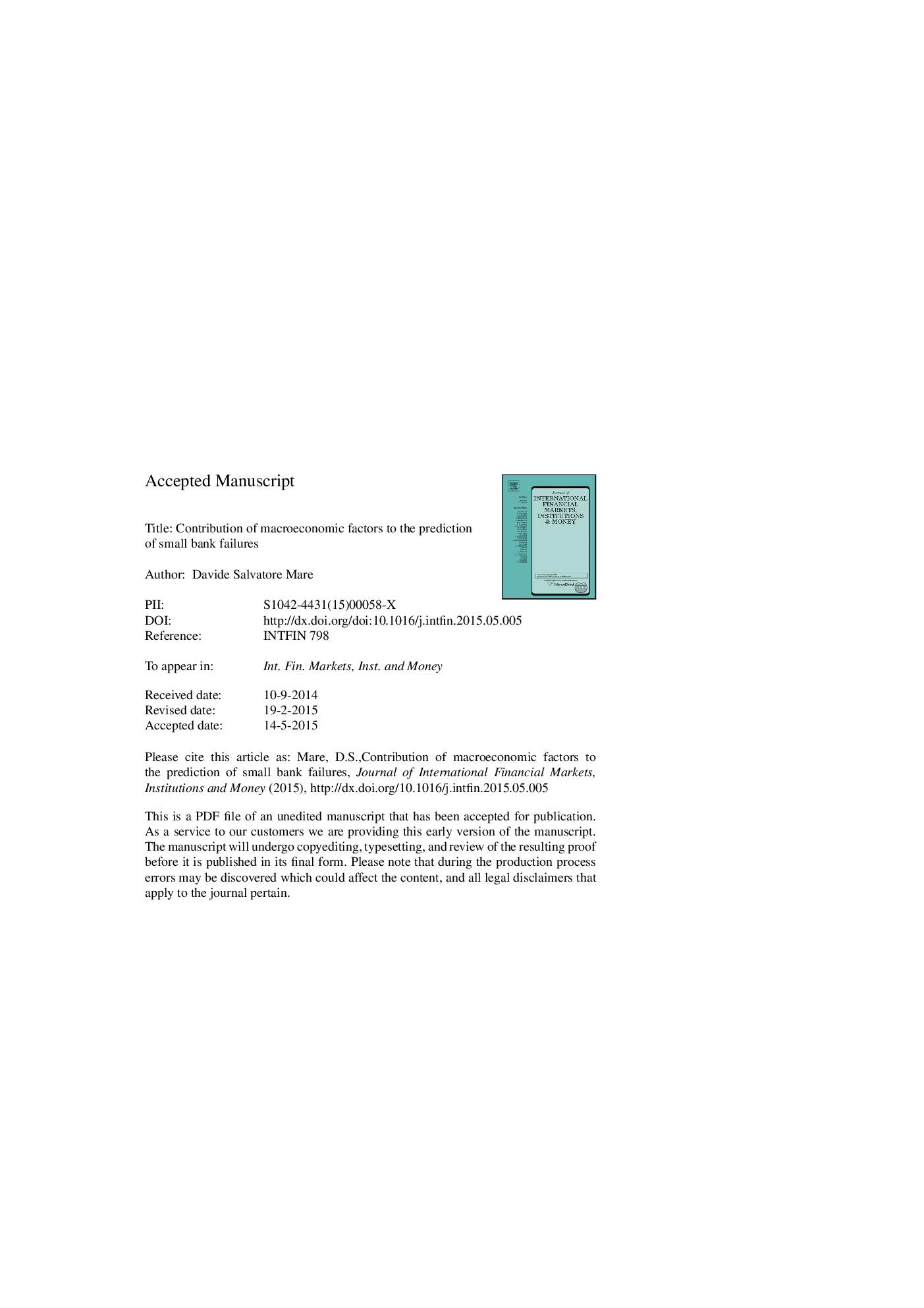| Article ID | Journal | Published Year | Pages | File Type |
|---|---|---|---|---|
| 7364654 | Journal of International Financial Markets, Institutions and Money | 2015 | 48 Pages |
Abstract
Microprudential regulation is an integral part of any banking supervisory framework. By analysing the link between economic conditions and the survival of small co-operative banks, this study sheds light on the importance of the economic environment after assessing individual bank stability over time. The results show that bank failure is better captured when we account for the state of the economy both at the national and the regional level. Moreover, voluntary closures and acquisitions across provinces appear to be related with bank distress. Our findings have important policy implications. First, using a wider spectrum of information increases the accuracy of default prediction models, improving the supervisory toolbox used to monitor the health of small banks. Second, economic downturns increase a co-operative bank's default risk, supporting the introduction of countercyclical capital buffers to lessen the negative effects associated to bank instability.
Related Topics
Social Sciences and Humanities
Economics, Econometrics and Finance
Economics and Econometrics
Authors
Davide Salvatore Mare,
